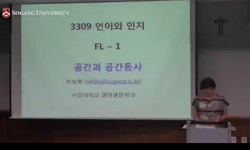본고는 셰익스피어의 작품 『베니스의 상인』에 내재된 정의의 개념과 복잡성을 탐구하며, 이를 동서양의 정의관을 바탕으로 분석한다. 기존 연구는 샤일록을 인종적 타자성과 베니스 사회...
http://chineseinput.net/에서 pinyin(병음)방식으로 중국어를 변환할 수 있습니다.
변환된 중국어를 복사하여 사용하시면 됩니다.
- 中文 을 입력하시려면 zhongwen을 입력하시고 space를누르시면됩니다.
- 北京 을 입력하시려면 beijing을 입력하시고 space를 누르시면 됩니다.

정의의 언어와 그 경계: 동서양의 정의관과 『베니스의 상인』 = The Language of Justice and Its Boundaries: East-West Perspectives on The Merchant of Venice
한글로보기https://www.riss.kr/link?id=A109586596
-
저자
김민 (연세대학교)
- 발행기관
- 학술지명
- 권호사항
-
발행연도
2025
-
작성언어
Korean
-
주제어
『베니스의 상인』 ; 정의 ; 언어 ; 샤일록 ; 처벌 ; 계약 ; 공리주의 ; 법과 도덕 ; 개인주의 ; 공동체주의 ; The Merchant of Venice ; Justice ; Language ; Shylock ; Punishment ; Contract ; Utilitarianism ; Ethics and Law ; Individualism ; Communitarianism
-
등재정보
KCI등재
-
자료형태
학술저널
-
수록면
41-72(32쪽)
- DOI식별코드
- 제공처
-
0
상세조회 -
0
다운로드
부가정보
국문 초록 (Abstract)
본고는 셰익스피어의 작품 『베니스의 상인』에 내재된 정의의 개념과 복잡성을 탐구하며, 이를 동서양의 정의관을 바탕으로 분석한다. 기존 연구는 샤일록을 인종적 타자성과 베니스 사회의 폭력성에 대해 비판을 하거나 계약에 대한 정의의 독립적 우위를 강조하는데 초점을 맞췄다. 본고는 정의와 도덕적 판단의 기준이 작품 속 등장인물들의 입장과 행동에 어떤 영향을 미치는지 분석하며, 정의를 단정적으로 평가하기 어려운 이유를 논의한다. 특히, 본고는 동서양 정의관의 차이와 이들의 교차점에서 발생하는 융합 가능성을 탐구하며, 공리주의와 공동체주의, 그리고 인의예지의 정의관이 샤일록과 베니스 사회 내에 다층적으로 작용하는 방식을 분석한다. 이를 통해, 정의의 기준이 특정 문화권의 사고방식에 대한 편견에 고정되지 않고, 서로 보완적이거나 상호 작용할 수 있는 가능성을 제시한다. 나아가, 샤일록과 베니스 사회를 둘러싼 도덕적·법적 비난의 복합적 양상을 조명함으로써, 개인주의와 공동체주의가 약자에 대한 배려나 포용과 같은 가치를 어떻게 달리 구현할 수 있는지에 대한 논의를 재평가한다. 이러한 논의는 서양은 개인주의적이고 동양은 집단주의적이라는 단순화된 문화적 통념을 넘어, 정의의 복합성과 다층적 접근 방식을 새롭게 조망할 기회를 제공한다.
다국어 초록 (Multilingual Abstract)
This paper examines the concept of justice in The Merchant of Venice by analyzing it through contrasting Eastern and Western perspectives. While previous interpretations have often emphasized justice as distinct from law, celebrated its triumph over...
This paper examines the concept of justice in The Merchant of Venice by analyzing it through contrasting Eastern and Western perspectives. While previous interpretations have often emphasized justice as distinct from law, celebrated its triumph over contractual obligations, or critiqued the structural inequities perpetuated by Venetian society, this study seeks to explore the nuanced dynamics of justice as portrayed in the play. Specifically, it investigates how differing interpretations of justice shape the moral and legal judgments of the characters and how these judgments reveal both the context-dependent and context-independent nature of justice. By examining Eastern philosophies such as Confucian notions of harmony and Western frameworks like utilitarianism and communitarianism, this paper demonstrates the way these perspectives interact in multifaceted ways, both within the play and as tools for its analysis. The study challenges reductive cultural stereotypes, such as the dichotomy of Western individualism versus Eastern collectivism, and instead highlights how each perspective offers distinct yet complementing insights into the moral and legal dilemmas surrounding Shylock and Venetian society.
동일학술지(권/호) 다른 논문
-
문화경관의 보존과 지속 가능한 예술관광: 퐁텐블로 숲, 지베르니, 오베르쉬르우아즈의 경우
- 전북대학교 인문학연구소
- 노시훈
- 2025
- KCI등재
-
- 전북대학교 인문학연구소
- Zhengli Hu
- 2025
- KCI등재
-
A Study on Exaggerated Expressions in Korean Sports Articles
- 전북대학교 인문학연구소
- Dongmei Cao
- 2025
- KCI등재
-
- 전북대학교 인문학연구소
- 김일환
- 2025
- KCI등재




 KCI
KCI KISS
KISS






